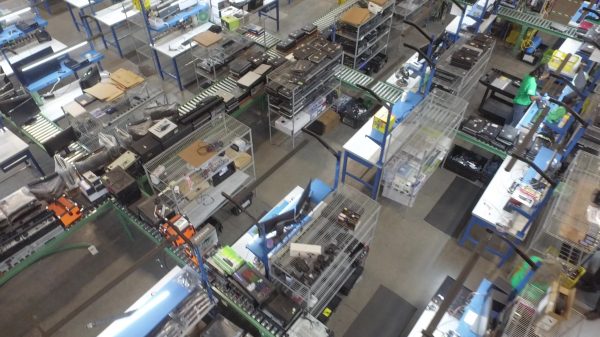
Every business will have to decide what to do with old electronic devices at some point, which means every business should be familiar with ITAD, or IT asset disposition. However, many businesses are still in the dark about the ITAD industry. Here’s everything that you should know about the ITAD process and how it affects your business:
What is IT Asset Disposition (ITAD)?
ITAD is the process of disposing of electronic devices in a responsible manner. The goal of ITAD is to keep the data on these devices secure at all times during the disposal process and to protect the environment from the harmful effects of e-waste.
How Do ITAD Vendors Dispose of Electronic Devices?
ITAD vendors dispose of electronic devices in special facilities that are designed solely for this purpose. First, the electronic devices are manually sorted by workers at the facility wearing protective gear to avoid exposure to harmful substances found within the devices. These workers will remove any hazardous parts of the waste, including batteries and toner ink. They will also separate items into those that can be reused and those that cannot be reused and should therefore be destroyed. Any electronic device that cannot be reused will be sent through a large machine known as an electronic shredder. The shredder crushes the electronic devices into small pieces that are easier to manage. The smaller pieces are sorted to pull out any materials that are valuable, such as copper, silver, gold, and palladium, which are all used inside electronic devices. Anything that is of value will be sold on the commodities market.
If the device can be reused, it will not be destroyed. Instead, the ITAD vendor will destroy the data on it and sell the wiped device. ITAD vendors use data destruction methods that are much more effective than what the average consumer is capable of using. Destroying data involves much more than simply overwriting the data—ITAD vendors destroy data in accordance with the Department of Defense and NIST Guidelines for Media Sanitization standards.
Why Businesses Should Work With ITAD Vendors
There are many reasons why businesses should consider working with reliable ITAD vendors. For starters, cybersecurity threats should be on the mind of every business owner in the country. Every business—regardless of the business’s size or the industry it is in—should be concerned about the possibility of hackers accessing their confidential data. If you do not work with an ITAD vendor, it’s possible that your business’s confidential data could fall into the wrong hands when you dispose of old electronic devices. However, ITAD vendors will completely destroy the data stored on your devices prior to disposing of them. This is the only way that you can ensure your information—and your customers’ information—is protected.
Disposing of e-waste without the help of an ITAD vendor can also harm the environment. Electronic devices contain hazardous substances such as lead, mercury, arsenic, copper, and barium. When electronic devices are sent to landfills instead of to an ITAD vendor, these harmful substances eventually begin to leak into the environment. As a result, these hazardous chemicals can contaminate the air we breathe and the water that we drink, which is why it’s so important to keep electronic devices out of landfills.
Using an ITAD vendor is not only the right thing to do for the environment, but it is also a way for many businesses to save money by avoiding fines. The discount retailer Dollar General recently learned this the hard way after being ordered to pay $1.125 million as part of a civil settlement for improperly disposing of electronic waste. The retailer was sending electronic devices and other hazardous materials to local landfills instead of properly disposing of them with an ITAD vendor. Businesses may even be able to make money by working with an ITAD vendor that shares the profits made after reselling components of the electronic devices.
Businesses within certain industries, such as those involved in healthcare or finance, have a legal obligation to properly destroy data when getting rid of old electronic devices. For instance, every business in the healthcare industry must comply with the Health Insurance Portability and Accountability Act (HIPAA) when it comes to data destruction. To comply with HIPAA, businesses must implement effective policies and procedures that address how data will be protected during the disposal of IT assets. Many healthcare businesses turn to reputable ITAD vendors to ensure they are compliant with this law.
ITAD For Individuals vs. Businesses
Individuals and businesses have very different needs when it comes to asset disposal. Whereas an individual may need to get rid of an old smartphone or computer when he buys a new device, a business may need to get rid of dozens and dozens of old electronic devices at once. In addition, businesses typically store data from hundreds or even thousands of customers, which needs to be protected at all costs. For these reasons, businesses need to rely on ITAD vendors instead of attempting to recycle their e-waste on their own. On the other hand, individuals should be able to easily clear the data off of their devices on their own and drop them off at a local e-waste recycler.
Now that you know about the ITAD process, it’s time to find a vendor that can help your business. ERI is one of the leading ITAD vendors in the United States. With locations in California, North Carolina, Washington, Colorado, Indiana, Massachusetts, and Texas, ERI processes more than 250 million pounds of electronic waste every year. For more information on recycling your electronics, or to request a quote for your company, contact us today.